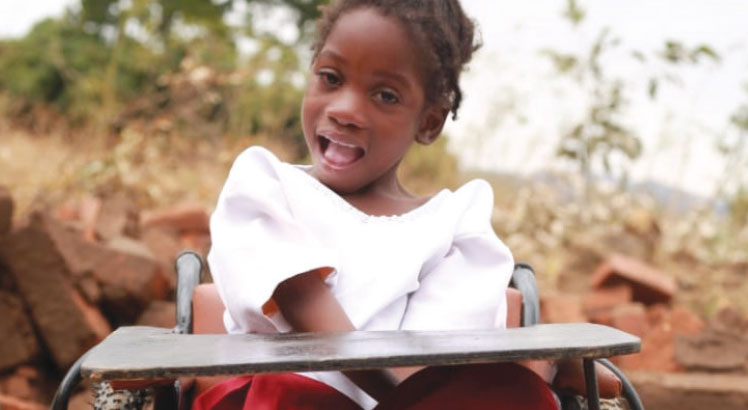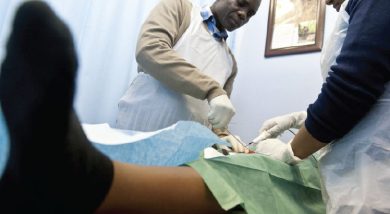Estere back on wheelchair
When Cyclone Freddy hit Malawi’s Southern Region in March this year, it was not easy for persons with disabilities to escape.
Ethel Luciano, 31, fled her collapsing house when the devastating rainstorm struck Sitaya Village, Traditional Authority Makata in Blantyre.
“I lost my house and everything in it,” says the single mother of two.” “For my firstborn Estere, nothing mattered more than her wheelchair, which was crushed when the house collapsed.”
The 12-year-old girl has cerebral palsy, a disorder which affects her movement, development and ability to maintain balance and posture.
The wheelchair eases her mobility and the burden of being carried around.
“I only rescued my two children and we are now living in an incomplete house provided by a Good Samaritan. Without a wheelchair, it’s hard to offer Estere adequate care and support,” says Luciano.
The Malawi Council for the Handicapped (Macoha) is assessing and providing assistive devices in households affected by Cyclone Freddy.
The disaster response in aid of persons with disabilities includes wheelchairs, crutches, hearing aids, sunscreen lotion and white canes.

The K33 billion initiative targets 244 persons with disabilities who lost their devices during the cyclone which affected more than 2.2 million people and claimed 676 lives.
Assessments by Macoha indicate that the cyclone displaced more than 47 000 persons with disabilities and at least 4 000 lost assistive devices.
Macoha spokesperson Harriet Kachimanga explains: “For those with mobility challenges, losing wheelchairs, clutches or canes leaves them completely reliant on family members or friends and unable to access social amenities such as healthcare facilities, schools, business premises or water, sanitation and hygiene services.”
Since May this year, Macoha has been working in partnership with Malawi against Physical Disabilities, Queen Elizabeth Central Hospital, and Orthopaedic Association of Malawi and district hospitals to identify deserving beneficiaries such as Estere.
The project funded by Christian Blind Mission targeted Cyclone Freddy survivors in Blantyre, Nsanje and Mulanje.
Estere, like many others with the condition associated with brain damage, was referred for physiotherapy at Queen Elizabeth Central Hospital.
Luciano spoke of promising improvements in her daughter’s ability to move and communicate.
She shared her joy when Macoha presented a wheelchair to Estere.
“I can now afford a smile,” says the happy mother. “I used to carry her to school. With this wheelchair, the school trips just got easier. Her schoolmates can easily take her to school leaving me at home to do household chores.”
Kachimanga urges well-wishers to support the remaining persons with disabilities who lost their assistive devices during Cyclone Freddy.
Shortly after the devastating cyclone, the Department of Disaster Management Affairs (Dodma) rolled out a three-month emergency response plan to address the immediate needs of the survivors. The emergency intervention targeted at least 1.6 million people from 363 856 affected households.
However, Spinal Injuries Association of Malawi Trustee Pamela Juma feels persons with disabilities were excluded and their needs were neglected in such programmes.
She says: “Many persons with disabilities were not reached with assistance.
“The structures in many emergency evacuation camps, including latrines, were not disability-friendly. We need to include and involve persons with disabilities from the planning stage.”
The association is engaging other players who work with people in humanitarian crises, including Dodma and the Malawi Red Cross Society to explore ways to improve service delivery for all.
According to the 2018 census, there are 1 734 250 persons with disabilities in the country—representing 11.6 percent of the total population aged above five years.





